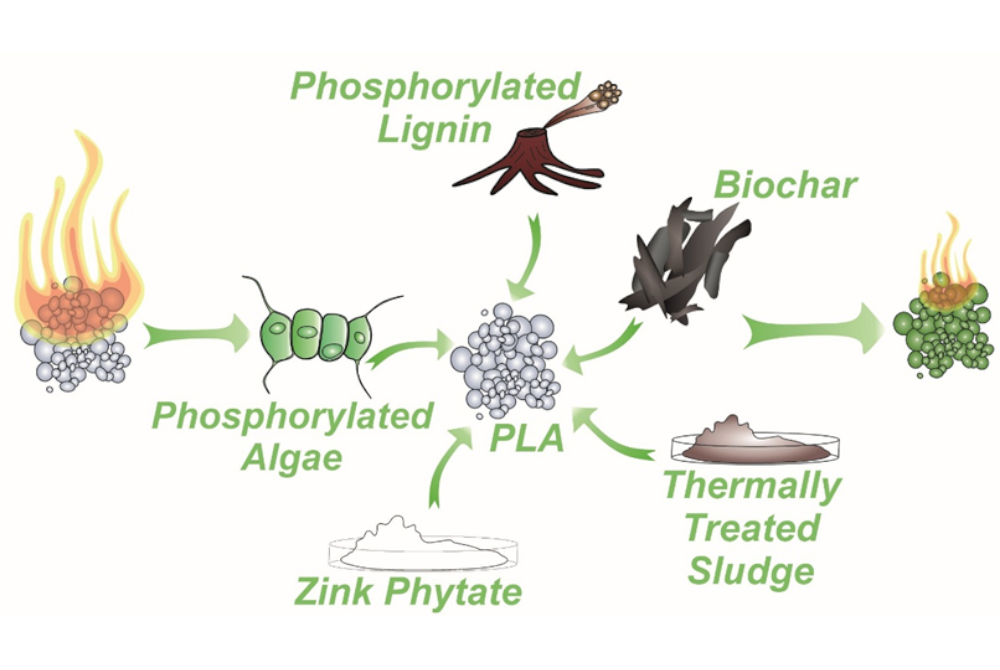
Renewable phosphorus-containing waste products as adjuvants in flame retardant polylactide - including the recirculation of critical raw material phosphorus from wastewater.
Source: BAM
Biopolymers are playing an increasingly important role in sustainable product design, especially in packaging, consumer goods, and technical applications. When such materials are introduced in applications with fire safety requirements, their intrinsic flammability poses a significant barrier to broader adoption. This is particularly true for poly(lactic acid) (PLA), e. g. when it comes to applications as flame retardant technical polymer in electrical engineering.
In the collaboration between BAM, Constructor University, iSeaMC GmbH and Tecnaro GmbH, we have addressed this limitation through a systematic investigation within the BMBF-funded research project FirePhyte (KMU-innovativ: Bioökonomie 031B1289B). Our study introduces in wastewater phosphorus-enriched microalgae (P-Algae) as a sustainable flame retardant for PLA. The concept unites the recovery of a critical raw material (phosphorus) with the creation of a sustainable flame retardant bio-composites. The biggest challenge lies in transferring the fire-retardant functionality of P-Algae into PLA matrices while maintaining processability and material performance. Through comprehensive material characterization—including thermal decomposition, small-scale calorimetry, fire testing, and molecular analysis—we demonstrated how different P-Algae loadings affect flammability, char formation, and thermal stability. Importantly, benchmark comparisons with other bio-based flame retardants (P-lignin, zinc phytate, biochar, and thermally treated sewage sludge) revealed unique synergistic effects and highlighted the role of phosphate reactivity rather than content alone.
This publication, "Wastewater phosphorus enriched algae as a sustainable flame retardant in polylactide," marks a key outcome of the strategic effort to merge circular resource use with technical fire safety in biopolymers. The study lays the groundwork for further applications of functional biomass in sustainable polymer systems.
Wastewater phosphorus enriched algae as a sustainable flame retardant in polylactide
Mateusz Dudziak, Riya Bhatia, Rohit Dey, Jana Falkenhagen, Matthias S. Ullrich, Claudia Thomsen, Bernhard Schartel
Polymer Degradation and Stability, Volume 227, September 2024


